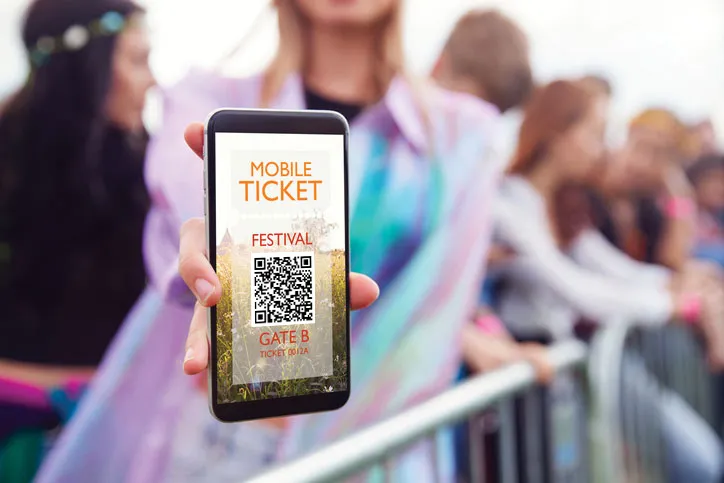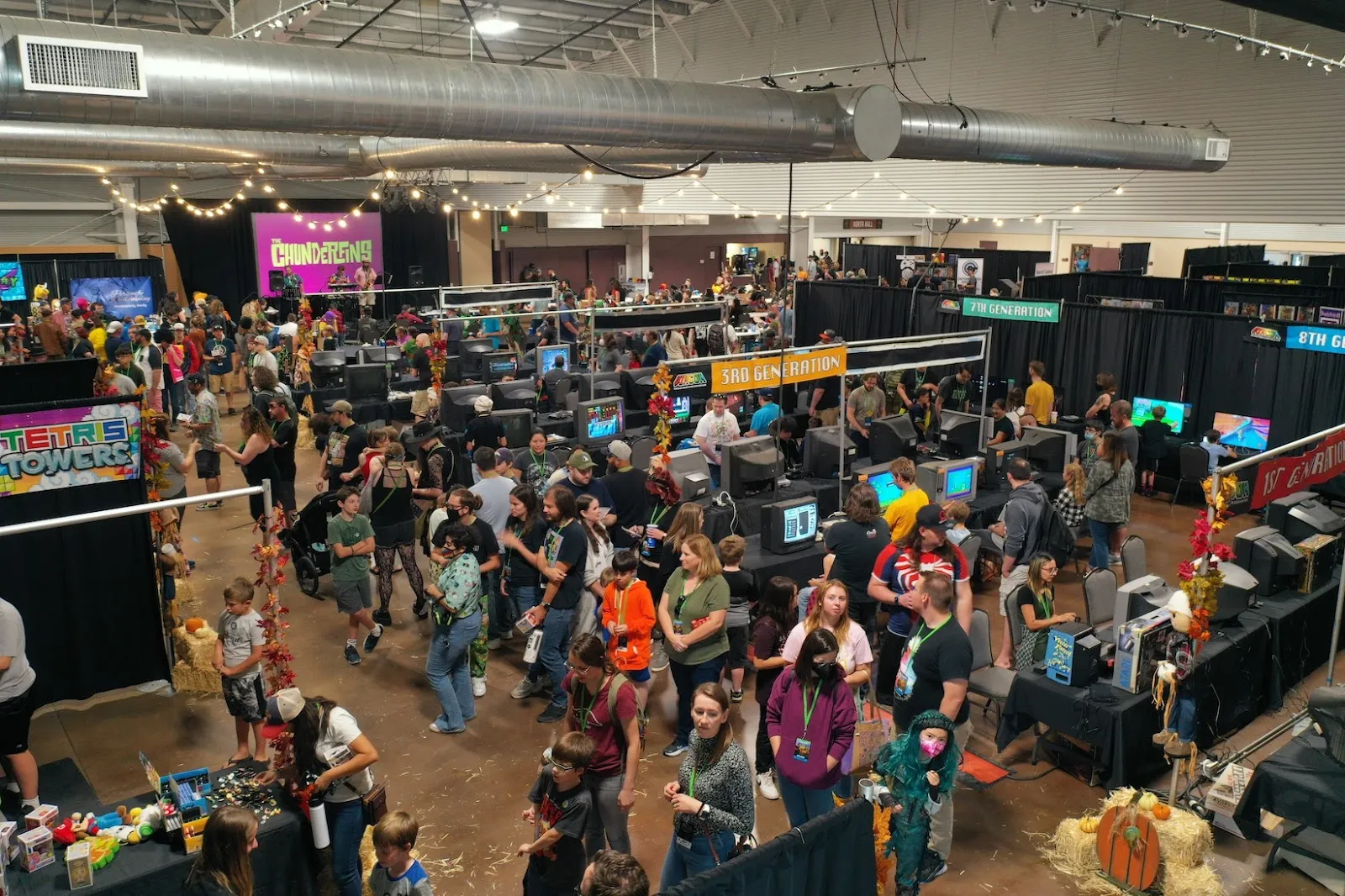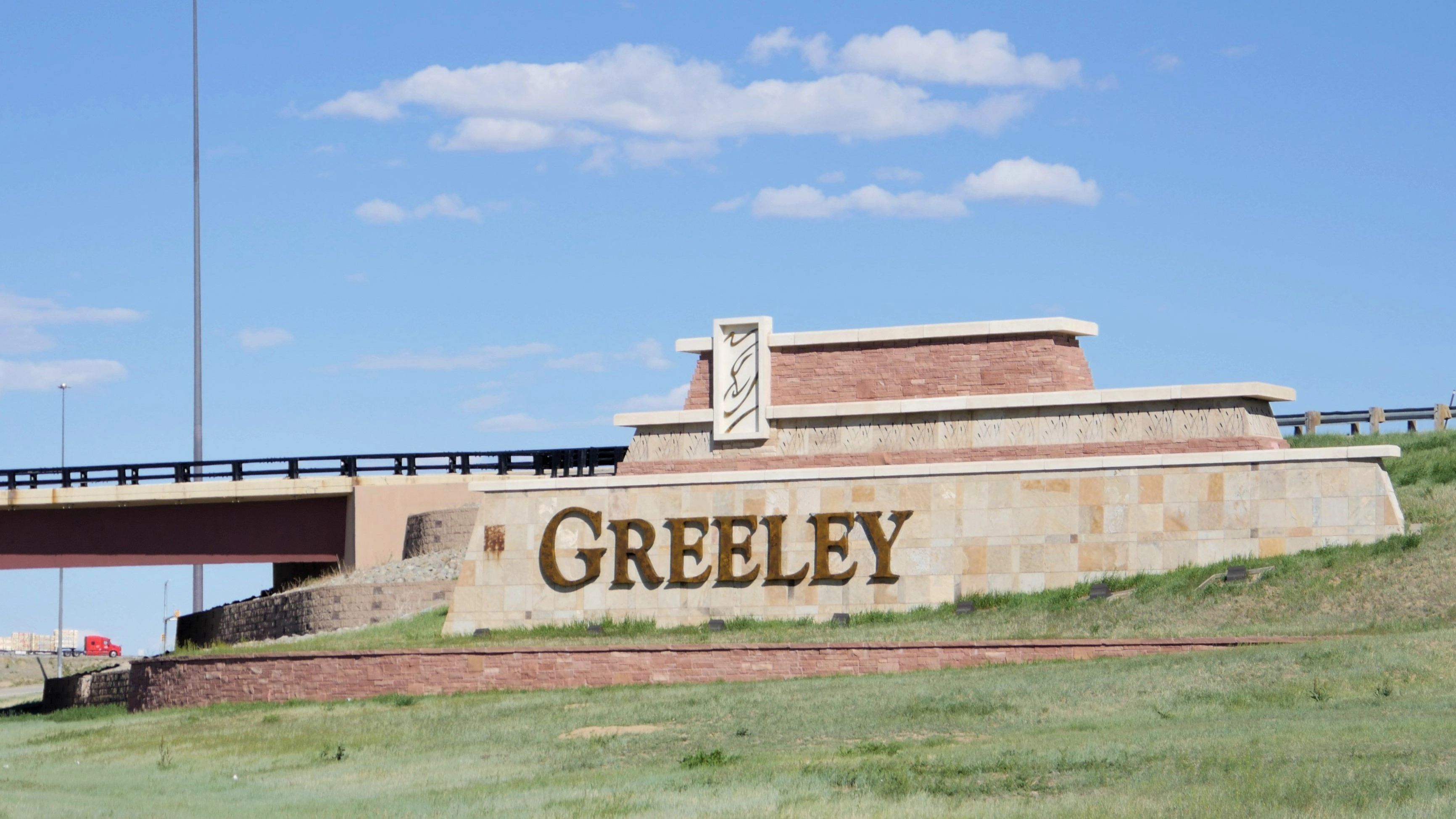Ticket scams plague top events at local venues
Consumers, venues battle fake QR codes, tickets

What used to be an innocent question in the past now raises the hair on Katie Baker’s neck: When do tickets go on sale?
Baker, as the Greeley Stampede’s ticket manager, is used to questions like that from the public. But now she has to wonder who’s on the other line trying to get a jump on the sale. Her suspicions proved correct in at least one case, as she sniffed out a customer using 10 fake accounts to purchase 10 tickets each, a ploy meant to profit from reselling.
Ticket fraud was always an issue for the Stampede, as it is for many other local and regional venues showcasing popular concerts: For years, Marketing Manager Kevin McFarling sent out emails warning consumers to buy only from the Stampede instead of third-party sites. But it was a real problem for the Sam Hunt show on July 3.
SPONSORED CONTENT
Most times, events such as the Stampede dodge the worst of ticket fraud because their concerts don’t feature stadium-filling acts, but occasionally, they hit gold with an act such as Hunt and charge just $50 for its highest tickets: That targets them for scammers who know they can resell those tickets for hundreds of dollars a pop.
“It hasn’t really hit us that hard,” said CEO Justin Watada. “But this year, Katie got thrown into the fire.”
It was, after all, Baker’s first year as ticket manager. That night there were long lines and dozens, maybe even hundreds, of angry customers after they found out their tickets were fake. There were also many scammers trying to get in for free, from teenagers trying to share a ticket to those who had already sold their ticket but were still trying to use it. That night, Baker saw fake QR codes, fake mobile tickets and fake accounts that she traced back to obituaries. She also saw some heartbreak. All of it held up a line to get in as they argued their cases with staff, causing concertgoers to wait a half hour or more.
“It just piled up,” Baker said.
Tips from venues and the AG’s office
• Buy from the venue — This takes time and awareness, but it’s the best way to ensure you have a real, guaranteed ticket at the lowest price.
• Save your confirmation emails — You may need to show them to the venue if your ticket doesn’t work.
• Know the “all-in” price — The advertised price of a ticket may be much lower than the true price because of add-on fees.
• Verify them — Inspect your tickets to make sure they match the time, date, place and location of the event you bought them for.
• Be wary of paper tickets — Many venues accept only mobile tickets. If you are offered solely paper or even emailed tickets that you should print, the offer may be a scam.
• Be wary of tickets before they go on sale — Sometimes these are legit, but in other cases, venues call these “speculative” tickets through third-party sites, and they are generally more expensive and not guaranteed.
David Weingarden, vice president of concert + events for Z2 Entertainment, which owns the Aggie, Fox and Boulder theaters, has another word for the ticket resellers who jack up prices for a profit, whether on their own website or on places such as StubHub. He calls them scalpers.
Consumers pay an average of nearly 50% more because of what he calls “parasitic” ticket buyers snapping up bunches and forcing consumers to turn to them once tickets are no longer available from the venue. As Sam Hunt showed, higher prices aren’t the only issue: Sometimes scalpers will put tickets up for sale when they don’t have them: If the demand isn’t too high, they can cover them, but in the cases of Sam Hunt, tickets are scarce, leaving consumers who purchased them out in the cold when they find out they don’t work.
“The one thing people don’t understand is the ticketing companies don’t do anything,” Weingarden said. “They’re just a marketplace for something we all use. Venues are the ones fully at risk. We have the property taxes and the staff and liability. We set the ticket prices for what we think the demand will be. And then you get these scalpers with computer programs snagging piles of tickets every millisecond they’re on sale.”
Many times resellers will also sell tickets through fraudulent means, by imitating promoter’s or venues websites and posting on social media with links. Third-party sites will spend hundreds of millions a year on SEO to ensure Google shows their sites first: This means scrolling down to find the venue’s true site.
“People don’t read,” Weingarden said. “Everyone wants things quick. This is deceptive.”
The Better Business Bureau received dozens of complaints as well nationally and locally involving Taylor Swift scams and other concert tickets. But they hit local places too. A popular scam for Sam Hunt was to post on social media selling tickets they didn’t have. One of McFarling’s jobs is to comb through social media and take down sites selling illegal or fake Hunt tickets.
“When we say an event is sold out, that’s when the messages skyrocket,” McFarling said. “I just took one down today, three weeks after the concert.”
Weingarden is a part of the FixTheTix Coalition, which hopes to address the problems legislatively. This year Weingarden lobbied hard for a state bill that he said would have helped, including limiting ticket sales while protecting buyers’ rights to resell (at a fair price). It made it through both bodies of the legislature but Gov. Polis vetoed it in June. They hope to bring the bill back next year.
This wasn’t nearly the problem at rodeos or the other nights, but those nights didn’t feature Hunt, a hot country music star and the Stampede’s obvious headliner. Hunt sold out, meaning the Stampede had to check every ticket, even for general admission. That’s been an issue in the past with sold-out shows such as Brad Paisley, who played last year.
The bigger the star, the more problems it causes, which is why Colorado’s Attorney General Phil Weiser issued a public advisory about ticket fraud on July 11 before Taylor Swift played at Mile High, even using one of her song titles to warn the public (who knew he was such a big fan?)
“If you’re a Taylor Swift fan, or you’re checking out any of the other amazing events in Colorado, don’t let it be a cruel summer,” said Weiser. “Be a smart event goer by making sure the tickets you’re buying are authentic and you know the full cost of any tickets you’re purchasing.”
The Stampede also deals with fake carnival wristbands. The best way consumers can avoid getting scammed is by buying directly from the vendor, which is true of most venues. Those tickets are tracked by the Stampede, and Baker can look up names, addresses, credit cards and when tickets were transferred, if they were.
“All we can really do is back up the tickets we sell,” Watada said, meaning even if it shows a problem, buyers may be allowed in or receive a refund if they can show through a confirmation email that they purchased the tickets from the Stampede.
TicketsWest is considering its own resale business for its shows, but that requires more manpower than the Stampede can afford right now. The Stampede is reviewing policies to see how it can speed up the lines in case there are problems next year, and it is considering other changes, including allowing fewer than 10 tickets per account.
“That’s something I think we need to revisit,” Baker said.
What used to be an innocent question in the past now raises the hair on Katie Baker’s neck: When do tickets go on sale?
Baker, as the Greeley Stampede’s ticket manager, is used to questions like that from the public. But now she has to wonder who’s on the other line trying to get a jump on the sale. Her suspicions proved correct in at least one case, as she sniffed out a customer using 10 fake accounts to purchase 10 tickets each, a ploy meant to profit from reselling.
Ticket fraud was always an issue for the Stampede, as it is…




